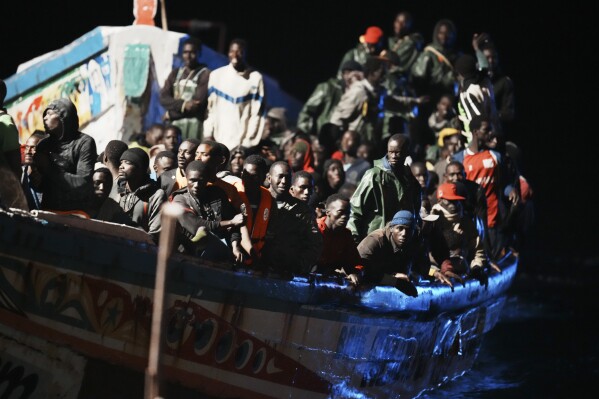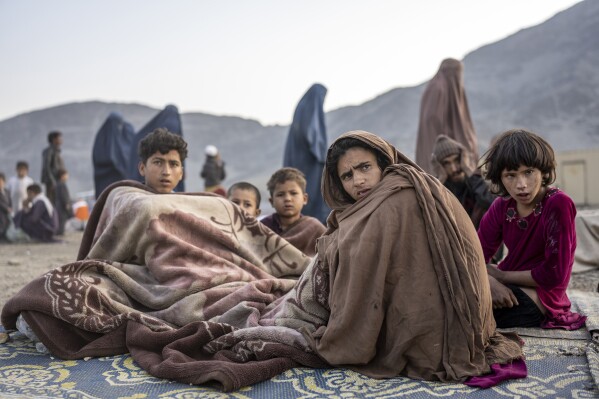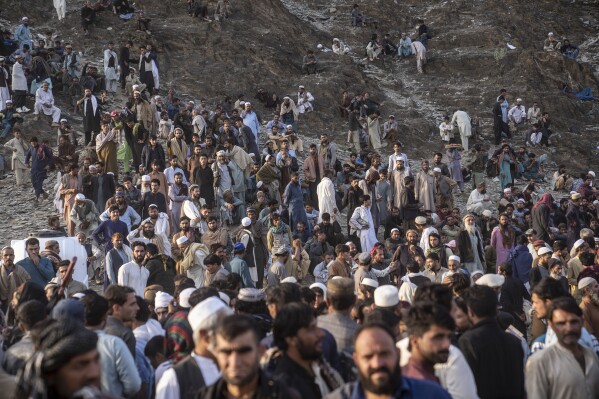Germany’s Scholz faces pressure to curb migration as he meets state governors
BERLIN (AP) — Chancellor Olaf Scholz is to meet Germany’s 16 state governors on Monday to address ways to deal with large numbers of migrants, an issue that has become a huge political problem for the government.
Shelters for migrants and refugees are filling up and Scholz, who faces enormous pressure from the opposition and elsewhere to halt that trend, has said that “too many are coming.” The country also has seen more than 1 million Ukrainians arrive since the start of Russia’s war in their homeland.
Over recent weeks, there has been a flurry of government activity, including legislation to ease deportations of unsuccessful asylum-seekers, to stiffen punishment for smugglers and to allow asylum-seekers to start working sooner, and the introduction of temporary checks on the Polish, Czech and Swiss borders.
The center-left Scholz also has discussed the issue twice with the conservative opposition leader since state elections last month brought poor results for his quarrelsome three-party coalition and gains for a far-right party.
 Migration from Senegal surges as more than 32,000 people have landed in Spain’s Canary Islands
Migration from Senegal surges as more than 32,000 people have landed in Spain’s Canary Islands
 Afghans fleeing Pakistan lack water, food and shelter once they cross the border, aid groups say
Afghans fleeing Pakistan lack water, food and shelter once they cross the border, aid groups say
 Taliban appeal to Afghan private sector to help those fleeing Pakistan’s mass deportation drive
Taliban appeal to Afghan private sector to help those fleeing Pakistan’s mass deportation drive
He faces pressure for results at Monday’s meeting with the state governors, who want more money from the federal government to deal with the costs of hosting migrants.
But “the key to being able to integrate people better is simply the number — we must end irregular migration so that we can do justice with good integration to the people seeking protection here,” Hendrik Wuest, the conservative governor of North Rhine-Westphalia state, told ARD television.
Wuest said measures that could help include ensuring faster asylum proceedings for migrants from countries from which fewer than 5% of applicants are granted asylum. He also pointed to the idea of conducting proceedings in Africa, for which there also is sympathy in parts of Scholz’s party.
Scholz, whose government is trying to negotiate agreements for countries to take unsuccessful asylum-seekers back in exchange for more opportunities for legal immigration, has signaled skepticism.
“There are a lot of proposals where one should perhaps ask third countries what they have to say before one begins discussing them in detail,” he said during a visit to Ghana last week.
___
Follow AP’s coverage of global migration at https://apnews.com/hub/migration
Disclaimer: The copyright of this article belongs to the original author. Reposting this article is solely for the purpose of information dissemination and does not constitute any investment advice. If there is any infringement, please contact us immediately. We will make corrections or deletions as necessary. Thank you.


